The Department of Electronics and Communication Engineering focuses on experiential learning and to that effect lays emphasis on maximum laboratory exposure to the students. The Department has state-of-the-art laboratories which facilitate practical learning and project work.
Major laboratories of the Department
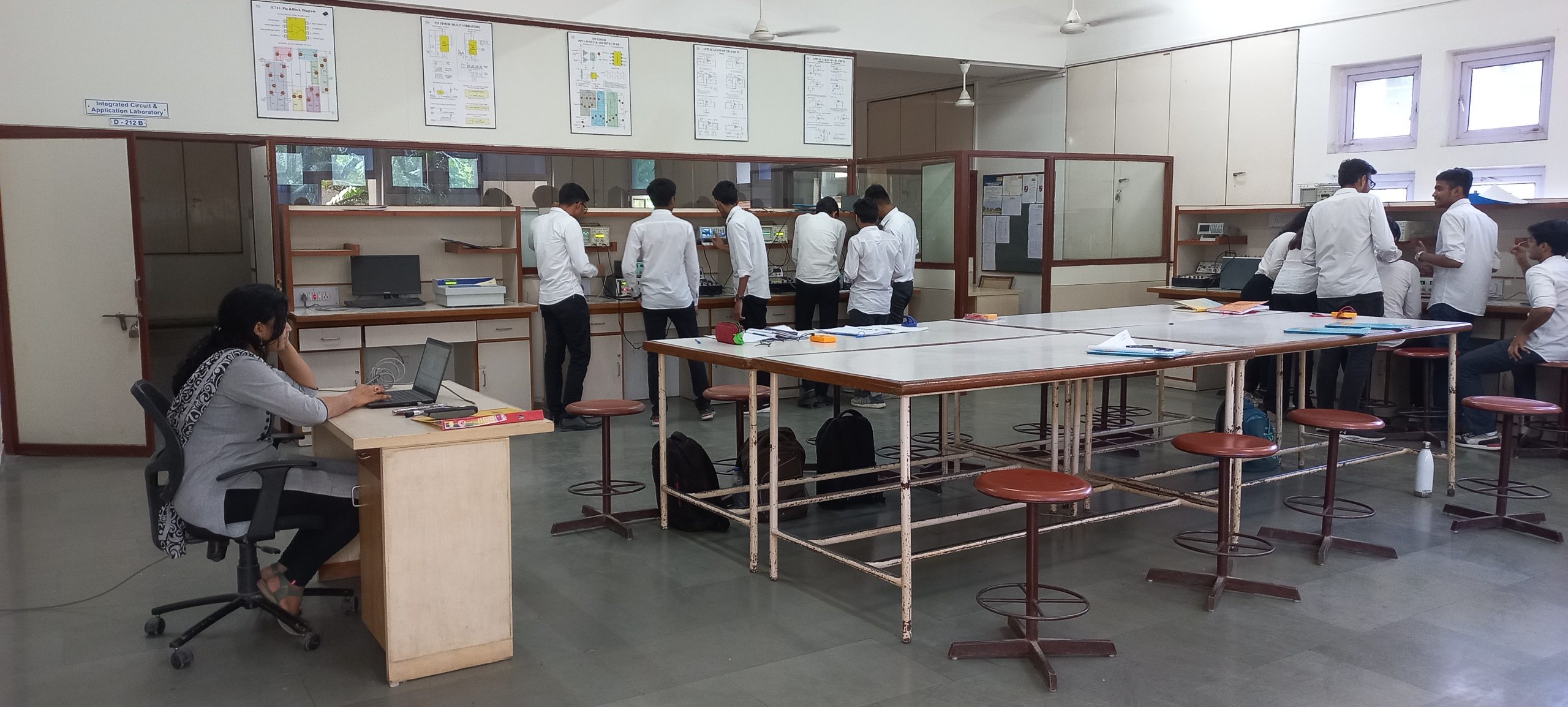 In the Analog electronics lab the important objective is to design and test analog circuits that are useful for amplification, filtering, signal generation, voltage regulation, and data conversion (analog to digital and vice versa). The experiment topics range from the study of basic circuits like Common emitter amplifiers, Op-amp (IC 741) configurations, etc. to advanced topics like Precision circuits, Filters, Oscillators, and applications of Integrated Circuits such as Timers (IC 555) , PLL (IC 565) & Regulators (IC 7805, IC LM 723 & IC LM 317).In addition, the latest NI Multisim software and Analog discovery kits are available for students to perform experiments.
In the Analog electronics lab the important objective is to design and test analog circuits that are useful for amplification, filtering, signal generation, voltage regulation, and data conversion (analog to digital and vice versa). The experiment topics range from the study of basic circuits like Common emitter amplifiers, Op-amp (IC 741) configurations, etc. to advanced topics like Precision circuits, Filters, Oscillators, and applications of Integrated Circuits such as Timers (IC 555) , PLL (IC 565) & Regulators (IC 7805, IC LM 723 & IC LM 317).In addition, the latest NI Multisim software and Analog discovery kits are available for students to perform experiments.
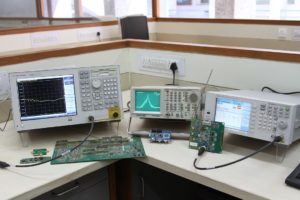 The laboratory is equipped with experimental setups on analog and digital communication systems consisting of modulation, demodulation, compression, error control coding, synchronization, etc. Verification of concepts and project ideas are facilitated through the MATLAB simulation software. The campus wide licenses of MATLAB alongwith the toolboxes provide simulation of mobile comunication, wireless LAN, satellite communication, radar communication, image processing, etc.
The laboratory is equipped with experimental setups on analog and digital communication systems consisting of modulation, demodulation, compression, error control coding, synchronization, etc. Verification of concepts and project ideas are facilitated through the MATLAB simulation software. The campus wide licenses of MATLAB alongwith the toolboxes provide simulation of mobile comunication, wireless LAN, satellite communication, radar communication, image processing, etc.
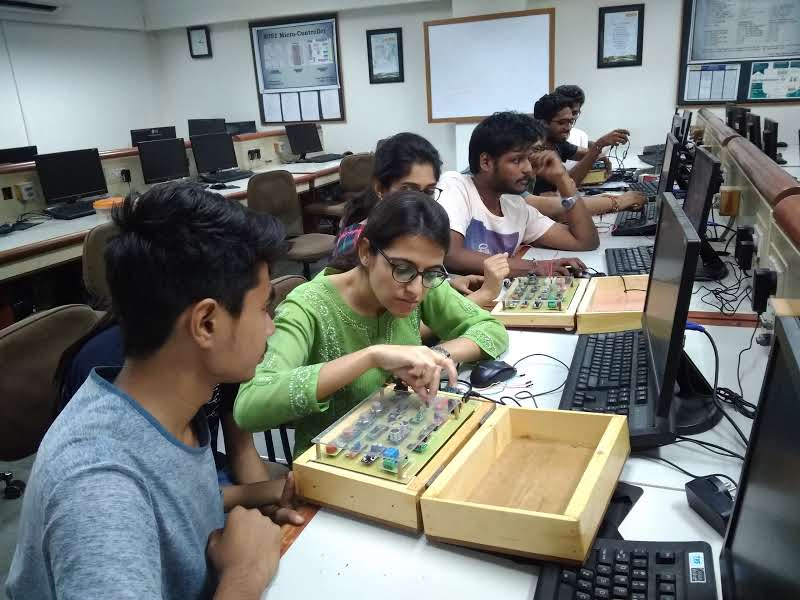
The microprocessor and Microcontroller lab of the Department of Electronics and Communication Engineering provides the hardware and software resources useful for laboratory experiments and project activities related to various courses, such as Microprocessor and Microcontroller Programming, Embedded Systems, and Digital System Design. The laboratory is designated for students to perform hands-on work for Embedded Systems, and Internet of Things (IoT) related projects. Development environments such as Keil IDE, and MATLAB are installed in the systems. Educational practice boards for programming microprocessor and microcontroller architectures like 8051, PIC, ARM, and ATMEGA are also available. The laboratory has electronic equipment such as Logic Analyzers, Digital Storage oscilloscopes, Arduino boards, ARM boards, PIC development boards, Raspberry Pi boards, etc., commonly used in Embedded systems design and development.
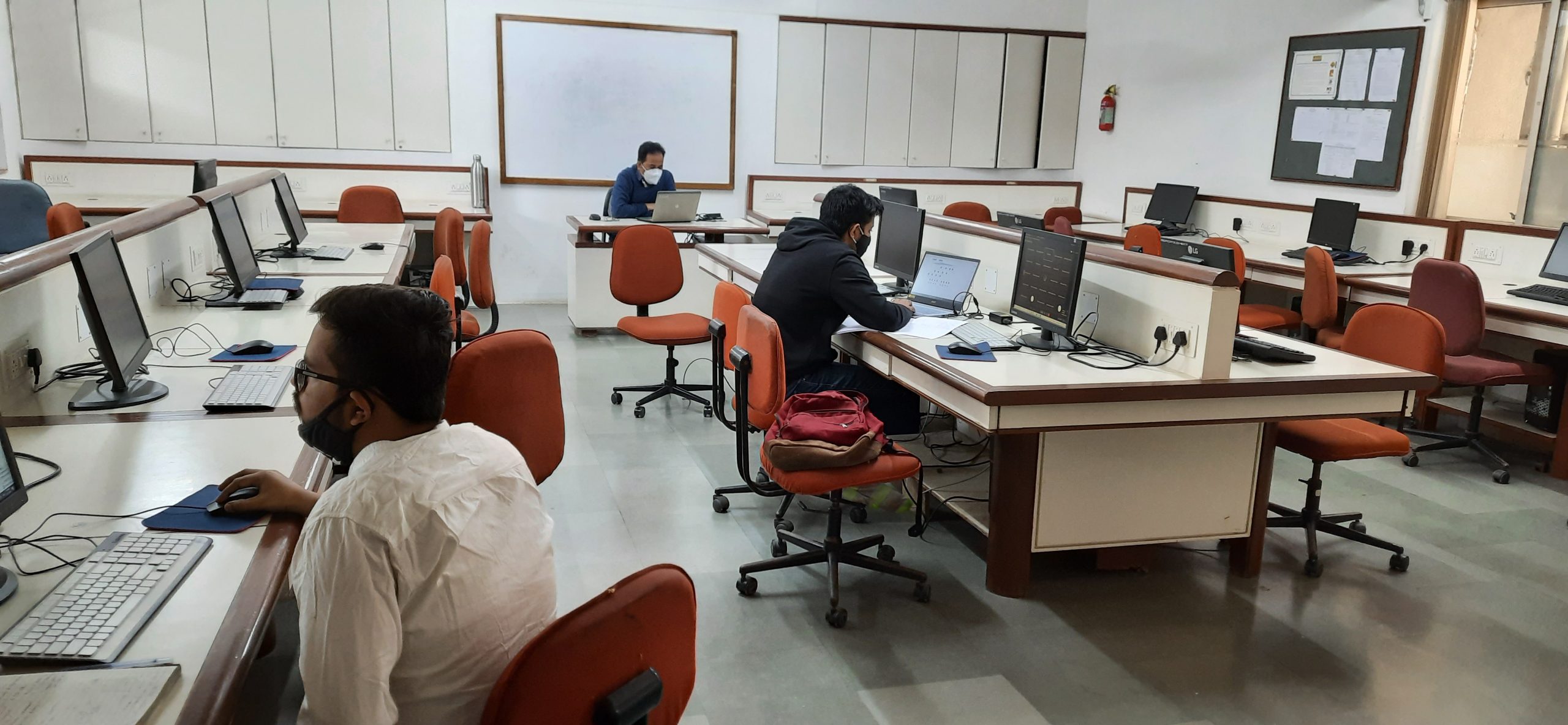
The digital design laboratory is furnished with cutting-edge workstations designed for executing digital design implementations and simulating the same. Students can engage in experiments centered around discrete digital components such as Arithmetic and Logic Circuits, Counters, Basic Sequential Circuits, and more. Additionally, advanced FGPA kits are at their disposal for experimenting with reconfigurable devices. Software tools like Altera’s Quartus and Modelsim are accessible for conducting experiments and simulation-related tasks. The laboratory is equipped with Wi-Fi connectivity, granting students access to all essential online resources.
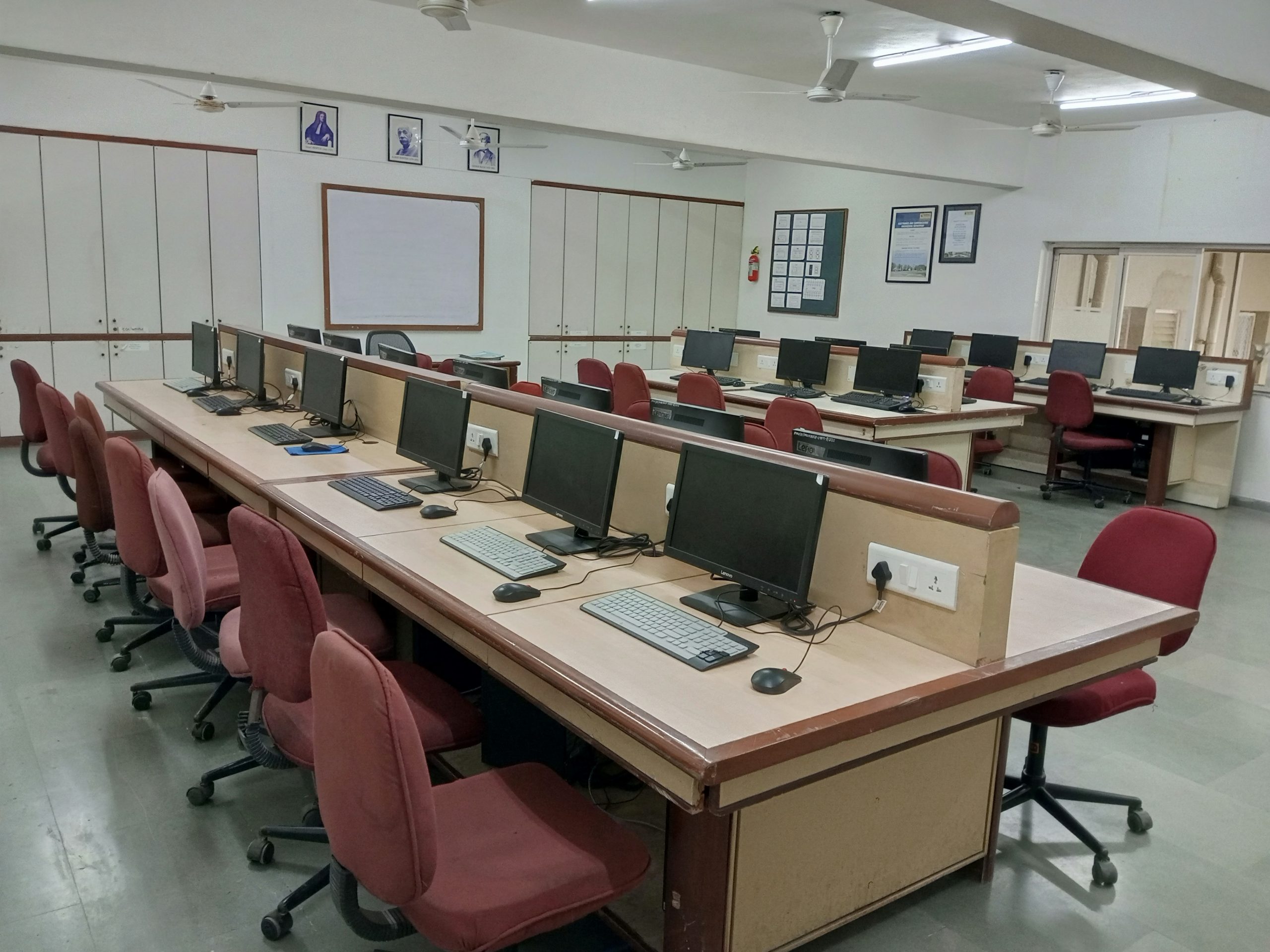 The FPGA (Field-Programmable Gate Array) based System Design Laboratory is a cutting-edge facility dedicated to hands-on exploration in the field of digital system design. This lab provides students with the tools and resources to design, prototype, and implement complex digital systems using FPGAs. In this laboratory, students have the opportunity to learn about FPGA architecture, programming languages like Verilog, and the design flow. They can experiment with FPGA development boards and tools, gaining practical experience in configuring FPGAs to perform specific tasks, such as the design of digital blocks, ALU, and signal processing blocks.
The FPGA (Field-Programmable Gate Array) based System Design Laboratory is a cutting-edge facility dedicated to hands-on exploration in the field of digital system design. This lab provides students with the tools and resources to design, prototype, and implement complex digital systems using FPGAs. In this laboratory, students have the opportunity to learn about FPGA architecture, programming languages like Verilog, and the design flow. They can experiment with FPGA development boards and tools, gaining practical experience in configuring FPGAs to perform specific tasks, such as the design of digital blocks, ALU, and signal processing blocks.
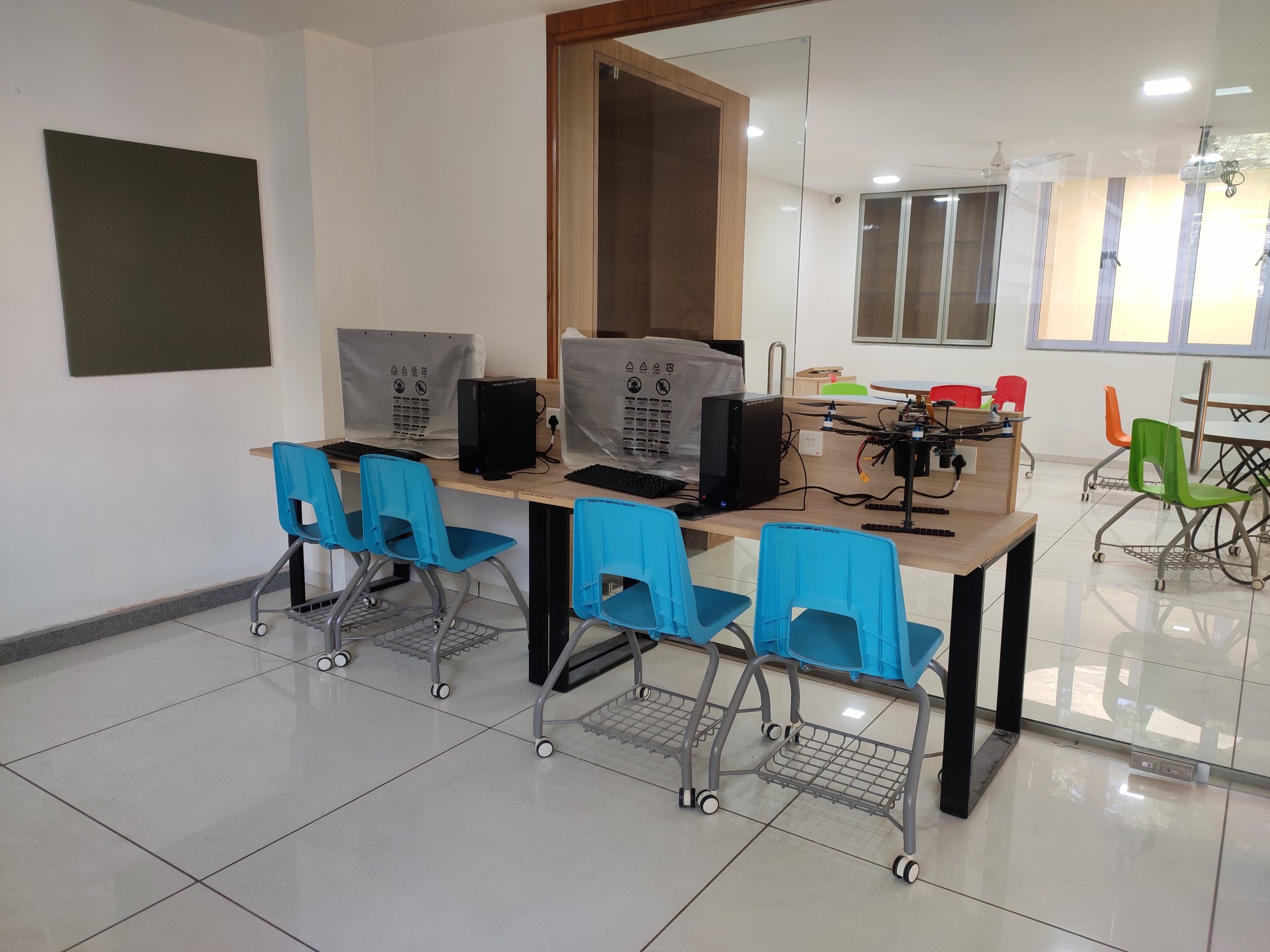
The Cyber-Physical Lab at Electronics and Communication Engineering Department stands as a testament to the institution’s commitment to nurturing innovation and technological advancement. With its different kinds of IoT kits, more than 50 types of sensor boards, RFID and NFC boards, Drones, Development boards for Edge Devices, High End computing systems with Intel Core i7 Processor with GPGPU and touch screen display, Industrial grade Computers, the laboratory serves as a crucible for fostering innovation and exploration in the realms of Cyber Physcial Systems. The well-equipped hardware and software facility offers UG and PG students and PhD scholars a dynamic environment to explore the boundaries of Cyber Physical System technology. The laboratory is not only a place of experimentation but alos a hub for preparing the next generation of innovators and problem solvers who can shape the future of technology with Cyber Physcial Systems.
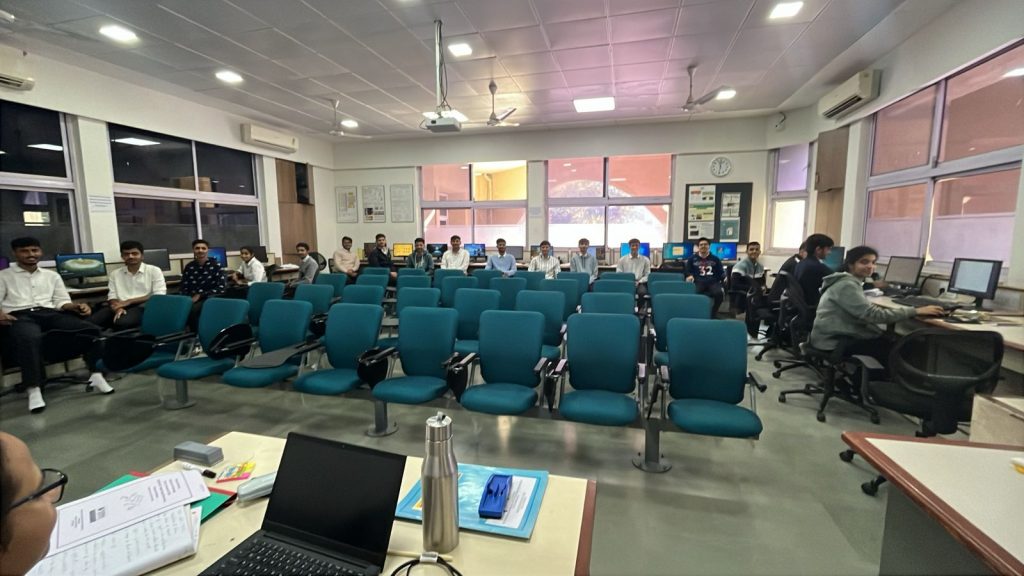 This laboratory aims to give exposure to students to design and experiment with applications in the field of Speech, Image and Video Processing including Computer Vision and Machine Learning. The laboratory is equipped with software such as Matlab, Python, and Keil and a variety of hardware kits and equipment like – Fixed-point Digital Signal Processors from Texas Instruments, Digital Media DM355 which is a highly integrated, programmable platform for digital camera image and video applications, DSP + ARM Low-power processor OMAP L138, Low-power single-board computer development platform, Analog Discovery kit, Dual Power supply single power supply, DSO, 6713 DSP Kit. Students can simulate, experiment and engage in their laboratory work as well as research projects in the areas of signal processing, machine learning and computer vision.
This laboratory aims to give exposure to students to design and experiment with applications in the field of Speech, Image and Video Processing including Computer Vision and Machine Learning. The laboratory is equipped with software such as Matlab, Python, and Keil and a variety of hardware kits and equipment like – Fixed-point Digital Signal Processors from Texas Instruments, Digital Media DM355 which is a highly integrated, programmable platform for digital camera image and video applications, DSP + ARM Low-power processor OMAP L138, Low-power single-board computer development platform, Analog Discovery kit, Dual Power supply single power supply, DSO, 6713 DSP Kit. Students can simulate, experiment and engage in their laboratory work as well as research projects in the areas of signal processing, machine learning and computer vision.
Over 27 years, the Department of Electronics & Communication Engineering at Nirma University’s Institute of Technology has created a vast, world-wide alumni network. Alumni regularly contribute to various department activities. In 2021, alumni decided to create a completely alumni-sponsored laboratory at the university. This laboratory will focus on the increasingly important areas of machine learning, computer vision, and robotics. It will provide both hardware and teaching to allow students to do high-quality research projects. These projects will focus on problems relevant to current needs of the Indian society.
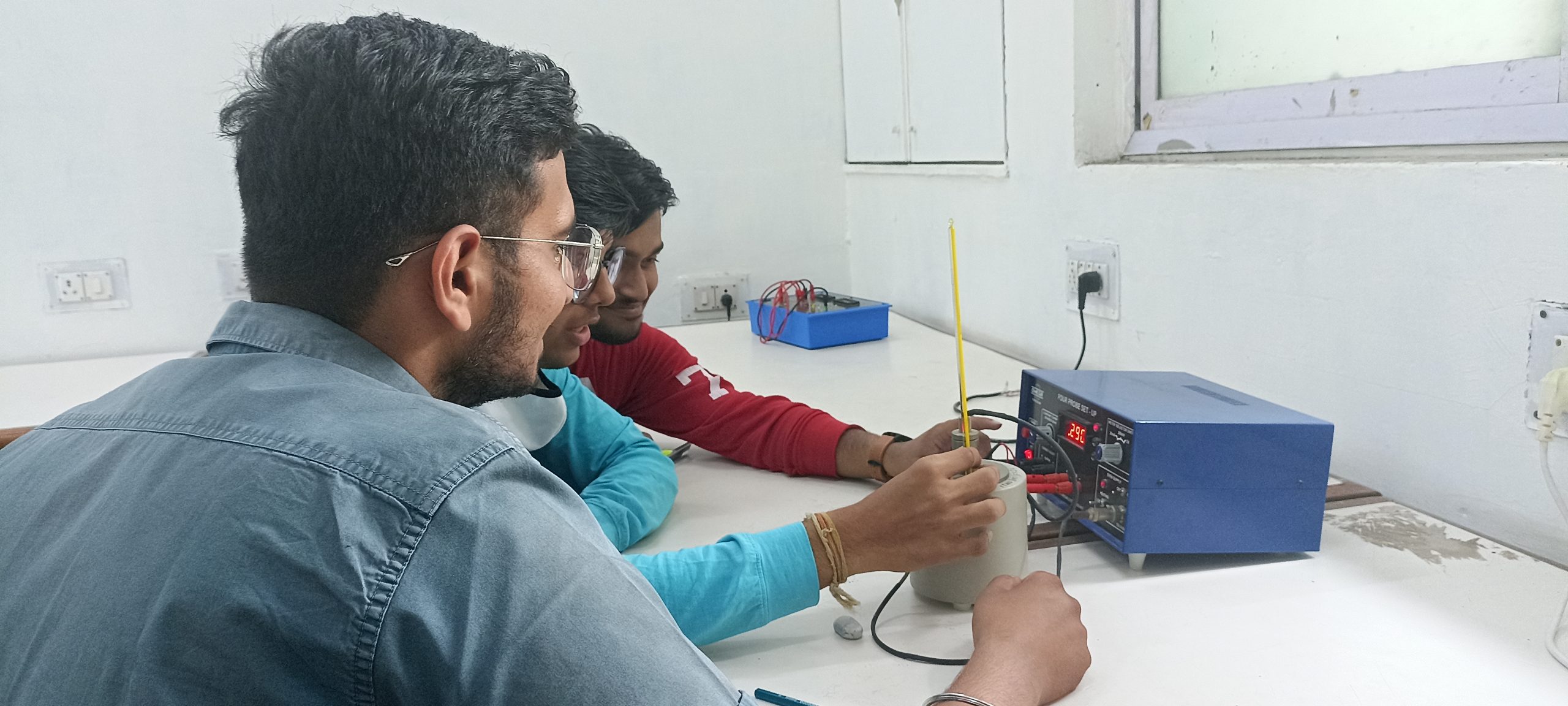 The Physics laboratory for the first year Engineering students cover the practicals related to fundamental principles of Physics. The laboratories are designed to provide students with hands-on experience and a deeper understanding to how physical laws and concepts apply to engineering disciplines. Both the Laboratories are well equipped with a wide range of instruments like microscopes, nuclear detector, laser kit and precision measuring devices. Students perform experiments that demonstrate fundamental principles of electricity, magnetism, semiconductor and optics. In addition to this, Physics laboratory consist of thin film section wherein the thin films of various nano materials are being deposited on various substrates. The laboratory also has high precision research instruments such as optical microscope (X 500), weighing balance and high temperature muffle furnace (1450 degree Celsius) with a with an accuracy of 4 decimal points.
The Physics laboratory for the first year Engineering students cover the practicals related to fundamental principles of Physics. The laboratories are designed to provide students with hands-on experience and a deeper understanding to how physical laws and concepts apply to engineering disciplines. Both the Laboratories are well equipped with a wide range of instruments like microscopes, nuclear detector, laser kit and precision measuring devices. Students perform experiments that demonstrate fundamental principles of electricity, magnetism, semiconductor and optics. In addition to this, Physics laboratory consist of thin film section wherein the thin films of various nano materials are being deposited on various substrates. The laboratory also has high precision research instruments such as optical microscope (X 500), weighing balance and high temperature muffle furnace (1450 degree Celsius) with a with an accuracy of 4 decimal points.